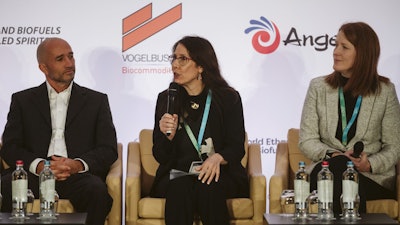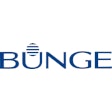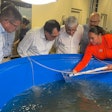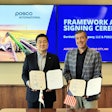
The U.S. Grains Council (USGC) is actively working to strengthen its ethanol export position in the European Union (EU), which ranked as the fourth-largest market for U.S. ethanol in the 2023/2024 marketing year with over 140 million gallons sold. Despite this significant volume, complex regional policies have hindered rapid growth in exports to the EU.
Stephanie Larson, USGC Regional Ethanol Manager for the EU, United Kingdom, and Canada, recently attended the World Ethanol and Biofuels Conference (WEBC) in Brussels, Belgium, to engage with EU policymakers and industry leaders. Her mission was to better understand the market dynamics and build crucial relationships in the region.
"The EU is a particularly complex market because of a variety of regulatory factors and consumer preferences," Larson explained. "But its status as a developed region, coupled with persistent ethanol shortages, means there is still room to grow U.S. exports there as the EU strives to meet internal ethanol demand."
Larson highlighted the potential for further growth, noting that the E10 fuel adoption wave has yet to reach all EU member states. This presents an opportunity for increased ethanol usage across the region.
During the conference, Larson participated in a panel discussion on policy challenges in advancing renewable ethanol for sustainable decarbonization in the EU. She also attended sessions focusing on global decarbonization goals, the role of sustainable aviation fuel (SAF) in reducing emissions, and the opportunities and challenges for biofuel growth within the EU's regulatory framework.
The trip concluded with meetings involving the European Commission's DG Mobility and Transport, which coordinates the Renewable Low Carbon Fuels (RLCF) Alliance, of which the USGC is a member. Larson also met with parliamentary assistants who expressed interest in learning more about USGC products and the potential environmental benefits of bioethanol for the transport sector.
"My conversations with political leaders and Council counterparts at WEBC have been informative and will help shape the Council's ethanol promotion strategy going forward," Larson stated.
As the USGC continues to navigate the complex EU market, these efforts to engage with key stakeholders and understand regional dynamics are crucial for expanding U.S. ethanol exports to Europe. The potential for growth remains significant, particularly as more EU member states consider adopting higher ethanol blends in their fuel supply.

















